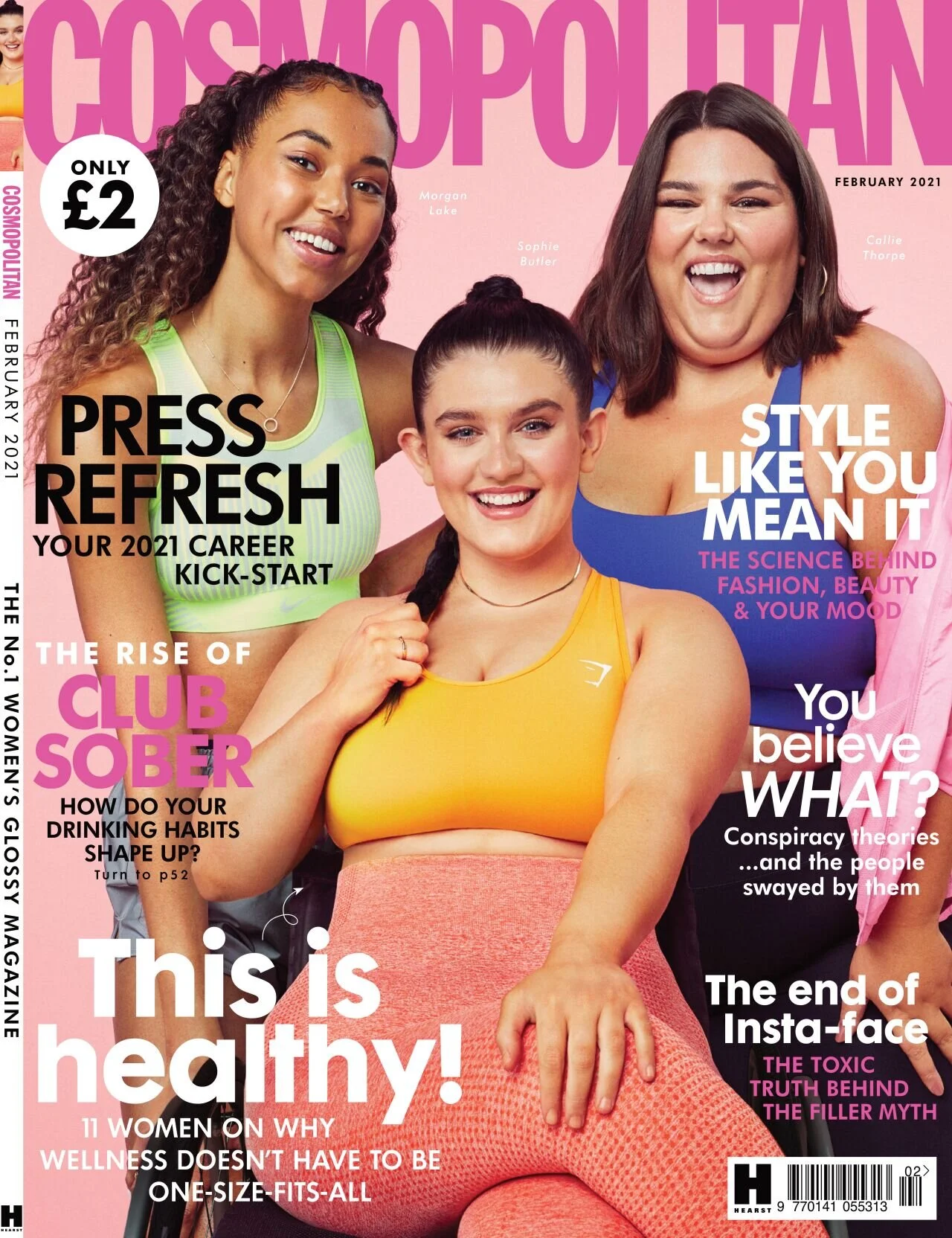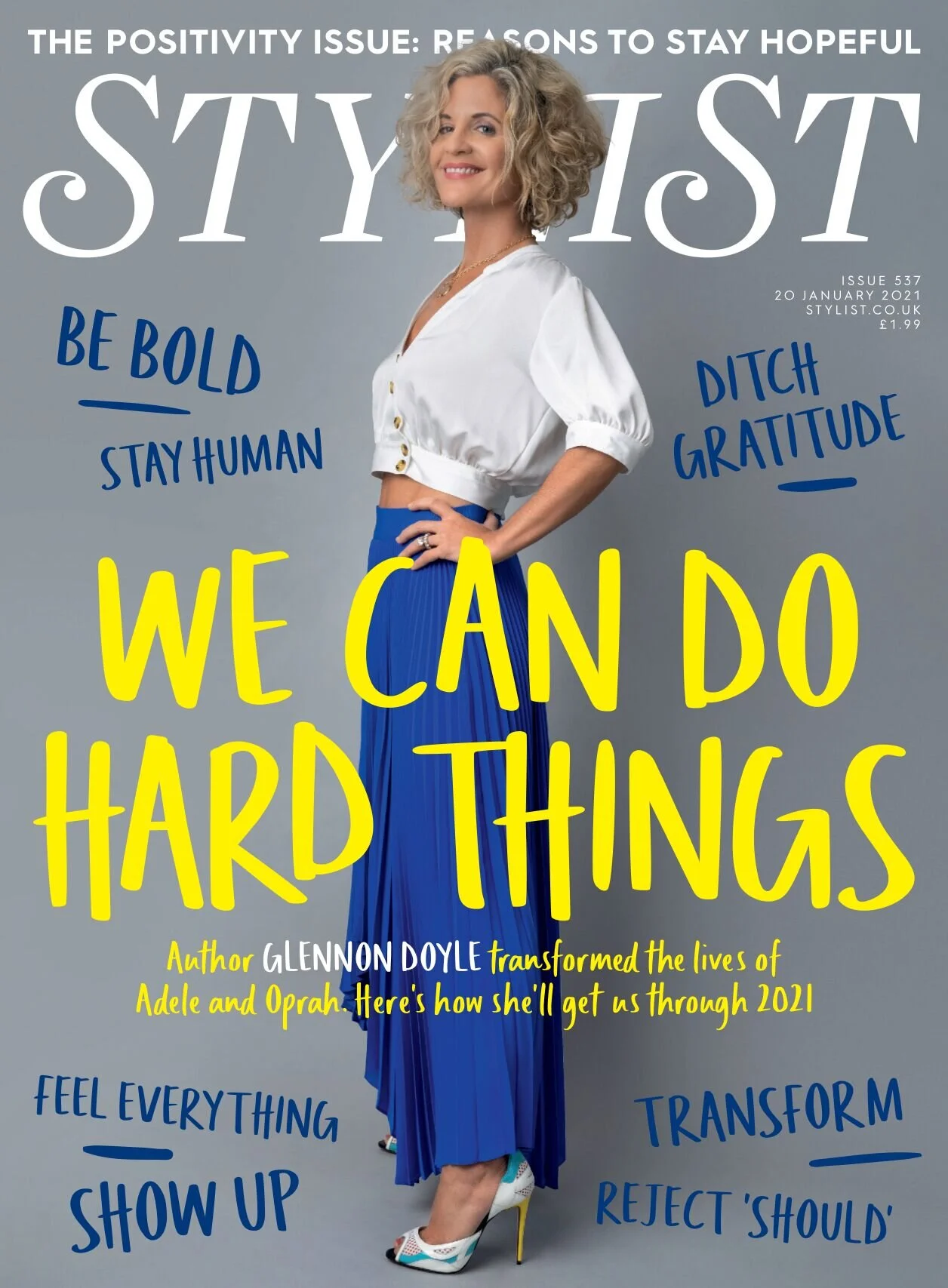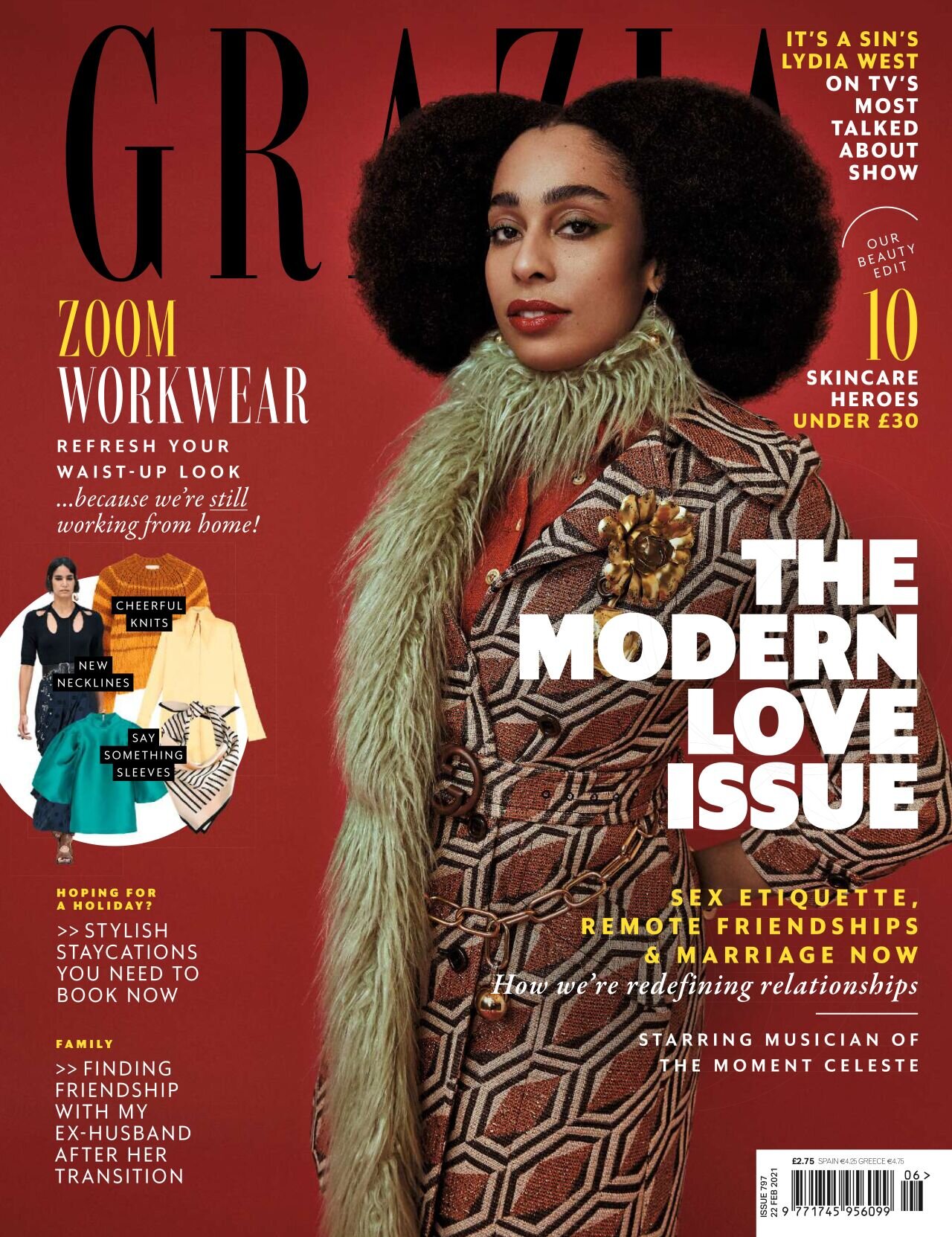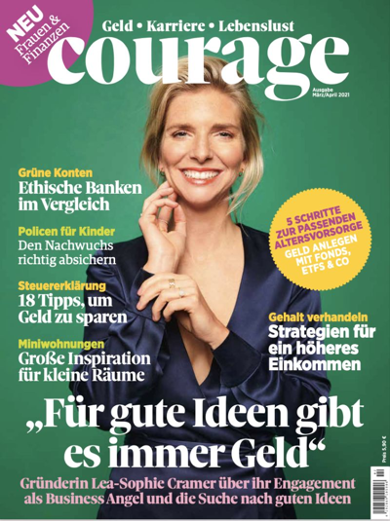Why covers are important to fight for true female empowerment
For International Women’s Day 2021 - #ChooseToChallenge
I was inspired to write my article about the covers that moved my 2020 (you can find it here) because there was a very tangible change that started happening last year. The topics were louder, the covers were more special, the heroes finally became more real. What I didn’t expect, was the reactions I would get from it, especially from younger women. Short comments, long stories, emojis and they all had something in common: they all felt a bit more seen, they finally recognised more women that looked like themselves on covers, they saw the headlines change, they saw different body shapes, skin colours, professions. If we were ever looking for confirmation that we need change and that we are taking some steps in the right direction, let this feedback be it.
What makes me hopeful, is that we started 2021 by continuing to head into this new, right and necessary direction. Baby steps, but some steps at least. Let’s set the stage for this year: Kamala Harris becomes the first (but in her own words, “not the last”) female, Black and Asian-American Vice President of the United States. When she steps onto the podium, she pulls back her shoulders, puts her chin up high and visibly inhales. It’s a short moment, probably invisible to many, but a crucial one. A moment to ready yourself as you are about to do something that you had to fight for, that you had to be brave for, and that you know will matter to others. A first of some kind, that will allow other women to follow because you opened a door. It doesn’t have to be becoming Vice President, but it can be; or it can also be many other things. The point is, we all have influence on those around us, which means we have the responsibility and opportunity to look for and create doors.
Magazine covers are important and powerful doors because they get seen by so many and they represent a special sign of recognition and accomplishment. It therefore matters that publishers and journalists are aware of the doors they are creating, the responsibility and opportunity that comes with it, the difference they can make for the women of tomorrow (and today for that matter).
Some of my favourite “doors”, and hereby meaning covers, of 2021 so far:
Kamala Harris on the February cover of Vogue US (heavily debated, yet already iconic);
model Aweng Ade-Chuol kissing her wife on the January Elle UK cover (after enduring horrific homophobic abuse online over her sexuality);
the February Cosmopolitan UK issue celebrating and discussing different healthy body types;
Akon Changkou as coverstar of Vogue Germany’s March issue on creativity and facing the future;
Stylist UK’s January positivity issue with “Untamed” author Glennon Doyle and her bold, empowering truths for all us women to own and believe in our own stories;
& the amazing Amanda Gorman on the cover on the February Time Magazine!
All these covers have stopped me in my tracks, have inspired me to think, read, reflect on why they matter, what doors they will open and what dreams they will inspire. For more young girls and boys to believe in what’s possible.
More of my favourites:
And yet there is another side to this positive development, because while we are moving forward in some areas, we are also moving backwards in others. Violence against women is one topic here, decreasing numbers of women in parts of the workforce is another crucial theme.
The pandemic has taken a toll on women in more areas than just one. Female unpaid work has increased to a larger extent than for men. In December 2020, all the jobs lost in the US economy were held by women*. We have seen evidence and many examples that this global crisis has led to a reinforcement of traditional social and cultural gender norms and a reversal of the progress made towards gender equality.
That is why, the New York Magazine early February cover matters so much: it shows a winding queue, representing the millions of women that have been pushed out of the workforce during the pandemic, which still isn’t over. The article tells the stories of women being forced to leave, and those leaving by “choice” - when really it was never their choice to begin with.
It is the old tale of how our systems and society and those very traditional gender norms basically chose for them, because women are simply expected to make the right choice, for their families, their children, their parents but very rarely for themselves. It’s a must read, and an angry, passionate, true outcry for change.
Already in October, reports in Germany by the Allbright Foundation** had shown, that as a consequence of the pandemic the share of female executives in boards of publicly traded companies had reduced to the level of 2017. This reversal came as a consequence of women having to care for their families and companies restructuring for the crisis in the most comfortable way: focusing on tried and tested male managers. That means, in comparison to many other countries, Germany is taking steps backwards. Even more important for magazines like “Courage” and “Strive” to enter the German publishing scene, magazines dedicated mainly to female career building, finances and life topics and with covers featuring real and inspirational women, such as Amorelie founder Lea Sophie Cramer.
Another part of this reverse development is that hate, violence and disrespect against women is also still a very real and dangerous threat. Domestic violence has intensified significantly due to lockdowns which has since been identified by the UN as “The Shadow Pandemic”***. Der Spiegel dedicated its lead article and cover of one of its February issues to the topic “Women as the enemy”, highlighting how the abuse suffered online is a small fraction of the violence that often happens in reality, and how agencies and officials often ignore this when really the scale is so much worse than we might think. The article is painful and heartbreaking to read because it is happening all around us, every day. I don’t think we can highlight enough how important it is for this topic to get lifted, for all of us to discuss it loudly, to strengthen the voices of victims and survivors and to finally ask the questions to the abusers, instead of asking the victims to defend themselves.
Wired UK celebrated its issue of changemakers and brilliant minds with Seyi Akiwowo on the cover and they couldn’t have picked better (or stronger). She is the amazing founder of Glitch!, the organisation dedicated to fighting and ending online abuse against women. For her, the pandemic represented a threat from day one, put simply in her own words because “increased internet usage means increased risk of being abused online.” (Wired UK)
These covers are empowering and uncomfortable and they are so necessary. We need wake-up calls, we need discussions, we need facts, we need voices to guide us.
The topics we have to face to truly empower women require all of us to work together - readers, consumers, publishers, journalists - to be brave, to face what's uncomfortable, to look beyond the obvious.
This is hard work but it is so important. Because what we stand to gain is better circumstances for so many, equality and better economic and social health; young girls (and boys) who grow up thinking that anything is possible. And no progress is too small not to be worth it. Whether it’s an article, a cover, an interview or just a conversation - so many doors can be created and opened, and so much good can follow.
We have to be brave enough to take the first step, to inhale deeply and to dare to do it.
By Marie-Sophie von Bibra
Image credits for most covers to Readly, for others at respective publication.
Reference articles:
*American Progress, “When Women Lose All The Job”: https://www.americanprogress.org/issues/women/reports/2021/02/01/495209/women-lose-jobs-essential-actions-gender-equitable-recovery/ // CNN, “The US Economy Lost 140,000 Jobs In December. All Of Them Were Held By Women”: https://edition.cnn.com/2021/01/08/economy/women-job-losses-pandemic/index.html
**Allbright Foundation, “Germany’s Special Path”: https://static1.squarespace.com/static/5c7e8528f4755a0bedc3f8f1/t/5f85ac5ec02756262f2b0f9f/1602595950169/Allbrightbericht-Nr.9-Abstract.pdf
UN Women, “The Shadow Pandemic”: https://www.unwomen.org/en/news/in-focus/in-focus-gender-equality-in-covid-19-response/violence-against-women-during-covid-19 (before the pandemic, 243 million women aged 15-49 experienced violence by an intimate partner in 2019; we have to expect higher numbers on record for 2020)
Spiegel “Feinbild Frau” (paywall): https://www.spiegel.de/politik/deutschland/frauenfeindlichkeit-im-internet-die-duestere-welt-enthemmter-maenner-a-00000000-0002-0001-0000-000175304147
















